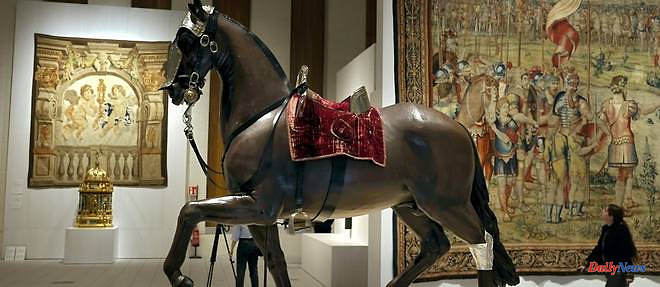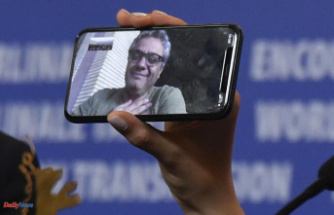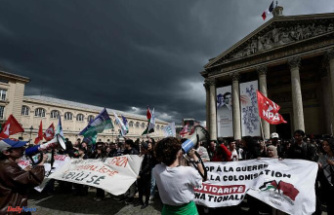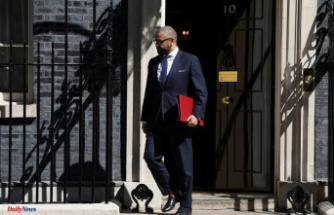Exited from luxurious palaces to be hung on the refined walls of an exhibition hall, hundreds of works acquired by the Spanish dynasties have been brought together in a new setting with ultramodern architecture: the Gallery of the Royal Collections.
The last public appearance of the Cheval Blanc by the Spanish painter Diego Velázquez (1599-1660) dates back to 2015, during a temporary exhibition in Paris. The rest of the time, "it hung in a room in the Royal Palace" in Madrid, adjoining this new museum which will open at the end of June, says Leticia Ruiz Gómez, director of the royal collections.
The huge painting is one of the centerpieces of the floor devoted to the House of Habsburg, which reigned over Spain in the 16th and 17th centuries.
A few steps away is a Caravaggio, or the "Triumph of Time", a tapestry more than three meters high which would have belonged to Isabella the Catholic (1451-1504), acquired in February by the Ministry of Culture for a million euros.
In a Spanish capital that already has museums of international renown such as the Prado or the Reina Sofia, the Royal Collections Gallery will be "a showcase" and will "show the diversity, richness and quality of what the kings collected for five centuries", explains Ana de la Cueva, president of the public body managing the Spanish National Heritage.
The idea of creating a museum to exhibit the royal collections had already been raised a century ago but the project had failed due to the Civil War (1936-1939).
A second floor is devoted to the Bourbon dynasty, the current King Felipe VI, with works by Francisco de Goya (1746-1828), a coach covered in bronze from the 19th century or even the "back portrait" of the king Charles IV, of which we only see the back of the wig and which earned its author, Juan Bauzil, the nickname of "mad painter".
A third level will host temporary exhibitions but also an "immersive" cube where 360° images of dozens of "royal sites" across Spain, from which the exhibits come, will be projected.
Most of the 650 works in the permanent exhibition were not accessible until then and were gathering dust in storerooms or wings of palaces and monasteries closed to the public. They will be renewed regularly, the museum being equipped with reserves at the cutting edge of technology to preserve the thousands of works of the royal collections.
"Our role is to show them so that citizens are aware that this heritage belongs to everyone, unlike other countries," she says, pointing to monarchies in which many works belong to the royal family and no to the state.
With the appeal of the monarchy eroding over time, the challenge for this new gallery will be to attract as many visitors as the neighboring Royal Palace, which averages around 1.5 million per year, compared to more than 2, 5 for the Alhambra Palace in Granada, the most visited monument in the country.
For this, the establishment relies on its architecture, which has won several international awards. The construction between 2005 and 2016 of the gallery required digging the rock of the cornice overlooking the royal gardens.
Porticoes of light gray concrete, between which are inserted huge bay windows, have replaced the cliff, so that the building is almost invisible from the heights of the palace.
08/06/2023 14:08:06 - Madrid (AFP) - © 2023 AFP












